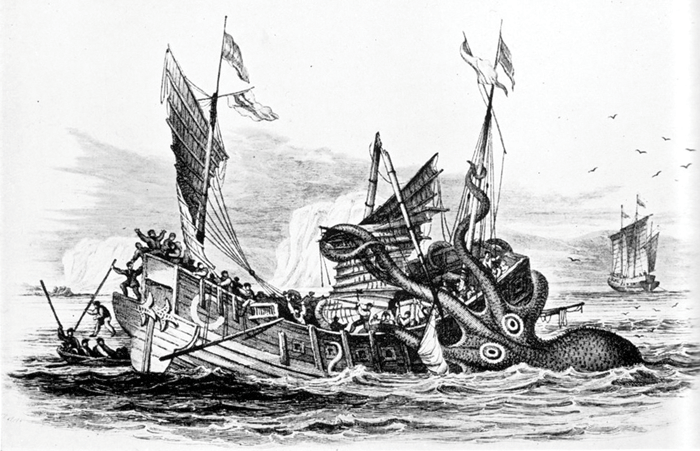Written by Alexander Hili
‘Release the Kraken’ is a very famous quote from Clash of the Titans. In the movie scene, a monstrous being, with characteristics of both squid and octopus, is summoned from the sea to smash a city to the ground. The Kraken is clearly a mythological creature, but the colossal squid (Mesonychoteuthis hamiltoni) is very real. The monstrously large squid grows to an estimated 12–14 m in length and has sharp swivelling or three-pointed hooks on its limbs. The bloated carcasses of this organism could have inspired the ancients. Large adults have never been caught since it is thought to live around 2.2 km beneath the water’s surface when it develops. Like the Kraken it is a very elusive creature that is rarely seen.





Comments are closed for this article!